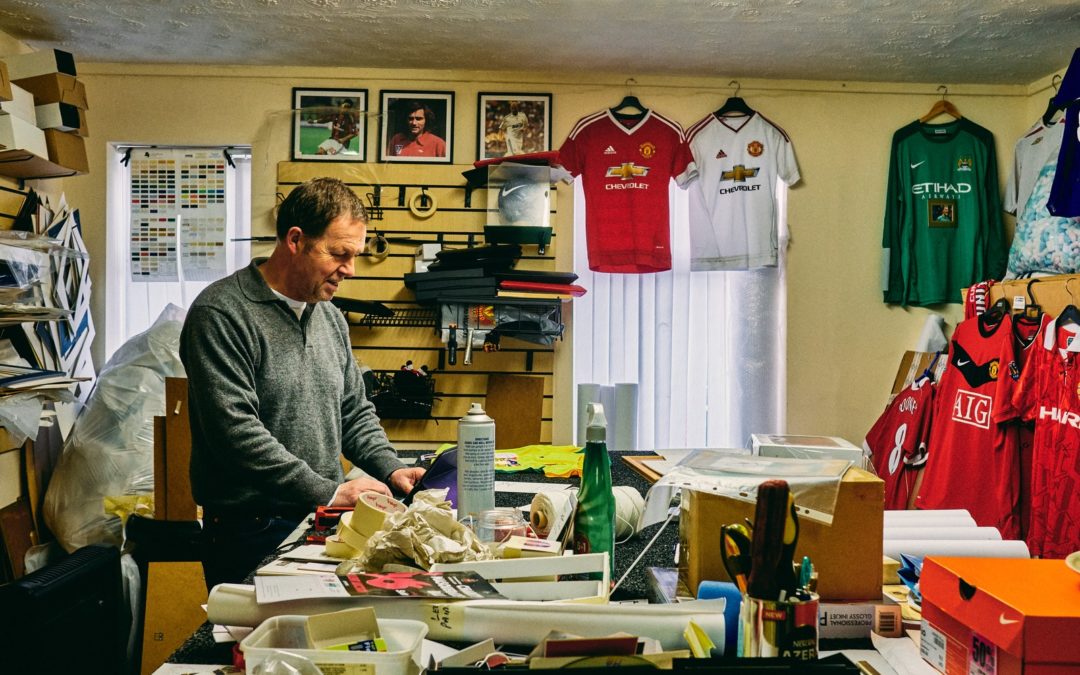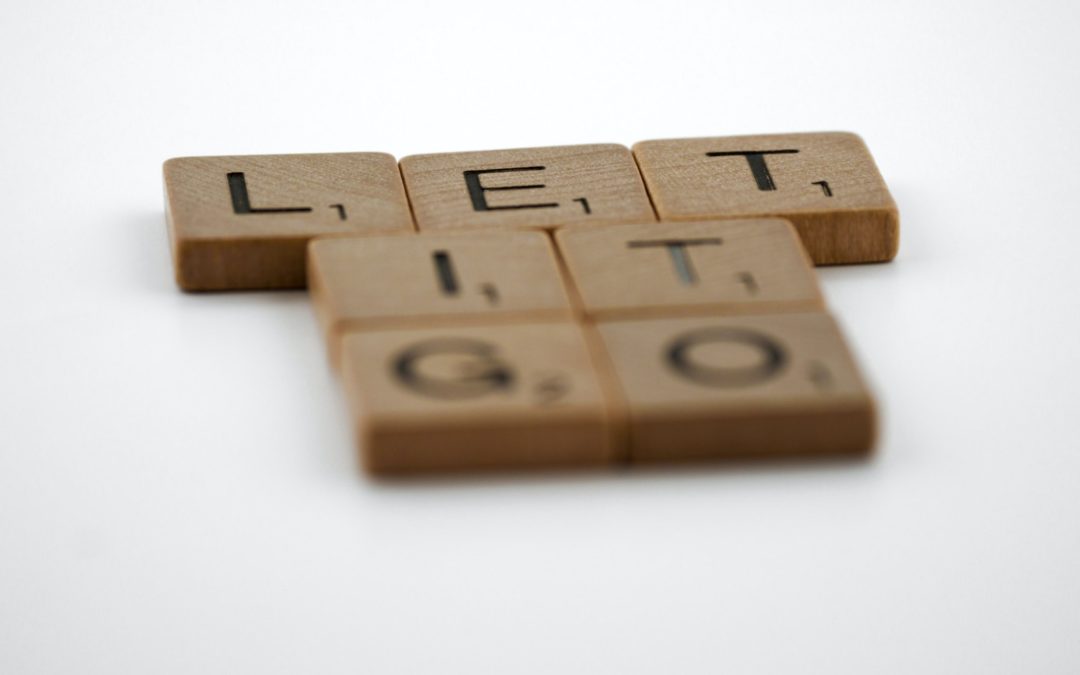
by admin | Jan 27, 2022 | Declutter
We hang onto family things because we are people with emotions and feelings. We assign value and meaning to everything we see or come into contact with. We have to do this to stop ourselves getting into total overwhelm or melt down when faced with a thousand and one choices every day.
You see a mahogany box that your uncle stored his love letters in from your aunty before she died and so you give that simple wooden box a value in your mind. You add to it all the memories of riding a bike from your own house as a kid to see your aunty Mabel and uncle Jack. You think of all the ice creams they bought you and some of the birthday presents for your first teenage birthday. All of this heavy emotional baggage attaches itself to the box. Now the box is not simply a 'box'. It has become a store of memory, a reflection of your childhood, a visual link to how you grew up and what you learned from good adult role models. It is so much more than wood and the pins that hold it together or the varnish that allows it to shine, or the crack in the back where it was once dropped on a pavement when your uncle moved into his care home as an elderly man. It has become a part of you. And you wonder why you find it hard to let go of the things in your life?
Everything has meaning and connection - good or bad - because we give such qualities and meanings to each thing we handle. You have my understanding and my empathy with this difficult process. Your home represents your sense of identity, of who you are to yourself as well as to those whose opinion you take on board. Your house or apartment is a mirror of how you feel about yourself and how you see yourself. The furniture, artwork, decorative style, clothing, photographs on display, all of these are elements of you.
Here are some themes of family clutter you might want to visit and consider whether the items are things to keep or to let go of.
Clothes: A shirt you wore on your wedding day, the suit you wore on the evening you met your wife, the wedding dress from that special day twelve years ago and which is still in the wardrobe. The graduation gown that you wore once but which is still in your wardrobe. Keep or Let Go.
Family Souvenirs: These are sometimes heirloom items which connect us to the larger family network and discarding them creates feelings of disloyalty. How about the walking stick and medals that were your grandfather's? The swivel leather chair and footstool that your Dad bought the week of his retirement in a colour you don't really like. The pocket watch that was worn by your great great grandfather. The clutch bag that belonged to your mother. A photo album from a wedding one hundred years ago and which you know is somehow connected to a relative, but you don't know which one. Do you Keep or Let Go?
Gift Items: A deluxe kitchen gadget you have only used a handful of times since it was given to you as a wedding gift or home warming present eight years ago. A framed picture of a country scene you really don't like, but which is on a bedroom wall because you were given it by your Great Aunt who you loved when you were younger, but who now you can't tolerate for her crankiness. She doesn't visit, but your parents do and they might comment critically if they didn't see the picture. Do you choose to Keep or do you Let Go?
When people spend money on a gift for us we can get in to all sorts of guilt where we don't like or appreciate the item they bought for us. How we see our relationship to them as the gift giver can affect the way we deal with the gift. Yet, it was just a gift, not a contract. We still allocate strong emotions to gifts we don't appreciate, especially where there is a chance the giver might enquire about our use of the gift at some future date, or at least where we think they will! The gift category of items we have among our clutter often presents some of the biggest emotional tussles when we try to let them go.
Comfort Objects from Childhood: How about the soft toys you had as a youngster or the comfort blanket you had first in your cot and then in your bed? A book collection that was relevant to you as a six year old, but you are now twenty seven! Keep or Let Go? Printed class photographs from your first year at school. A plastic crate of boxed games and toys that you might be keeping handy for your grandchildren, who are not born yet! A uniform or handbook from the scout group you were part of when you were ten and eleven, but which was three decades ago. A wooden baseball or cricket bat from teenage years when we played well at senior school level. Will you Keep or will you Let Go?
We don't set out to acquire rooms of stuff that we make little use of. Instead we attribute value to something because of the memory trigger it gives and the feelings it stirs within us. We allow this magical quality to settle on it and we end up struggling to know what to let go of because everything becomes special. All that we choose to keep has a powerful hold over us. But it is also clogging the space in your home and creating stagnant energy.
It's time to make some space and to change the feel of your living space. You deserve to make some changes. Don't complicate this process. When you pick up an item in your home you simply need to ask yourself, "Do I Keep or Let Go?" You will know what to do.

by admin | Jan 26, 2022 | Simple Self Help
Don't think that you have to wait for life to teach you all the lessons of money education. This could be a long time for you! Instead get yourself enrolled on some evening classes about managing debt and credit cards, or pick up a book on the topic of saving or investing. Attend an event with your local Better Business Bureau or Chamber of Commerce about starting your own business. Use a local business search to connect with small business owners and operators in your neighborhood. Go to a networking evening and let people know about you and what you are interested in. Any of these approaches can be supported through the internet and your local evening college so get hold of a prospectus and see what you courses you might be able to join.
Pick the brains of someone who you consider to be financially sound or even successful in terms of business or money or life experience. Ask them about the mistakes they have made and how they turned the situations around. You will be surprised to learn how often the person you approach will willingly give you some of their time or how they will reveal that for all they have achieved there were so many times when they lost it or had to start over again from scratch.
Is there a friend you can invite out for lunch in order to have some of their time to discuss and consider the way you have been approaching money management?
Handling cash is another great way to learn about money. Given how much you may have become used to using plastic cards to lead your life, the use of cash will be a new experience.
I recommend you start by monitoring your finances for a while until you know what the repeated patterns of earning and spending tend to be.
Once you have done this, take from your bank enough money to last you for one week. This might be the equivalent of your week's salary, or one quarter of what you are paid in a month.
Put the money in a bowl at home and each day take the majority of the cash with you out into the world. When you have to buy something use the cash. Do this at the shops, the fuel station, coffee bars, restaurants, book stores, anywhere you buy something. The physical act of handling the money makes it more real, more present in your life.
An interesting side effect of handling the cash is that you may discover you will spend less on items that you might unconsciously have bought previously and stuck on the credit card. You may discover yourself questioning whether that drink or item of food or clothing is really worth the amount of cash the shop might want you to handover. As a result you save the money for another day, giving yourself greater choice and more financial power.
Keep learning new skills, continue looking for new ways to earn and save the money you have.

by admin | Jan 13, 2022 | Declutter
We struggle to let go of the very special items in our homes precisely because we first bring them in for a reason. We love them or have given them a cherished value. We saw them as being our link to someone we have loved. Perhaps we received them from a favourite grandparent or a school teacher who was our coach and mentor. Possibly we hold onto that blanket because it was on our Aunt's bed or in a blanket box that our grandmother left to us in her will. Those vinyl records can't be played on any digital device you own in your apartment, but you hang on to the albums because of what? Your Dad had albums of his own when he was a boy so you bought your own collection of them at a vintage market after hearing him enthuse about the magic of listening on a record player. It is this magic which we often add to objects that forces us then to continue holding onto them long after any real functional or practical value has passed us by.
And this is the real reason we hang onto things, because we are people with emotions and feelings and we assign value and meaning to everything we see or come into contact with. We have to do this to stop ourselves getting into total overwhelm or melt down when faced with a thousand and one choices every day.
You see a mahogany box that your uncle stored his love letters in from your aunty before she died and so you give that simple wooden box a value in your mind. You add to it all the memories of riding a bike from your own house as a kid to see your aunty Mabel and uncle Jack. You think of all the ice creams they bought you and some of the birthday presents for your first teenage birthday. All of this heavy emotional baggage attaches itself to the box. Now the box is not simply a 'box'. It has become a store of memory, a reflection of your childhood, a visual link to how you grew up and what you learned from good adult role models. It is so much more than wood and the pins that hold it together or the varnish that allows it to shine, or the crack in the back where it was once dropped on a pavement when your uncle moved into his care home as an elderly man. It has become a part of you. And you wonder why you find it hard to let go of the things in your life?
Everything has meaning and connection - good or bad - because we give such qualities and meanings to each thing we handle. You have my understanding and my empathy with this difficult process. Your home is a reflection of you and your values. It represents your sense of identity, of who you are to yourself as well as to those whose opinion you take on board. Your house or apartment is a mirror of how you feel about yourself and how you see yourself. The furniture, artwork, decorative style, clothing, photographs on display, all of these are elements of you.
In collecting items of value or which you attribute a value to - whether this is still holding each version of the iPhones you have owned, or having three dozen boxes of trainers dominating your bedroom cupboard - what are you achieving? You are filling your home space with stuff you do not need or use and which has been superseded by the latest phone or the newest trainers. We put the image of us as a fashionable, technical innovator on to the phones. You see yourself as a sporting woman with the boxes of trainers. You can only use one cell phone at a time. You can only run in one pair of trainers during the race or wear one pair of sneakers to the shops. But the belongings we fix around us are simply a reflection of the magical attributes we allocate to them.
If you can accept that you have too much clutter in your home, then you must recognise how different you would feel with less 'stuff' getting in the way. Not just in the physical sense but also in the way you would feel liberated with less. Make no mistake about this, by allocating such magical qualities to items in your home that other people would observe politely as clutter, or worse as junk, you are blocking yourself from living a higher energy, more focussed life where your distractions are reduced.
We don't set out to acquire rooms of stuff that we make little use of. Instead we attribute value to something because of the memory trigger it gives and the feelings it stirs within us. We allow this magical quality to settle on it and we end up struggling to know what to let go of because everything becomes special. All that we choose to keep has a powerful hold over us.
Making a decision about such items and their role in your thoughts and emotions, as well as in the practical tasks you carry out every day or week, will make it easier for you to let go of so much. By doing this you will allow so much lighter, more positive energy into your living space and change the focus of your life. Rather than be a guardian or custodian of hundreds of individual pieces of stuff that constantly require your attention, and drain your energy and focus, you can learn to let go of vast amounts of these. This allows you to feel more free and to live a life on purpose.

by admin | Jan 7, 2022 | Simple Self Help
But they do develop from seeds! From the seeds of a smile, a kind word, a listening ear, from an opportunity to be shared and from a moment in which a decision is made that brings you closer to someone. In much the same way that we will plant surplus seeds to bring in the anticipated harvest, so too we can sow the seeds of a relationship by simply giving generously to that relationship.
Leaving aside the natural harvest analogy, you need to recognise that any relationship is developed. They do not just happen. If they did the interaction between two people would be called a meeting and not a relationship. And where a meeting can be a formal, structured and one-off event, a relationship by comparison is the place where so much more can happen.
Relationships at their best are supportive and nurturing. They can bring fulfillment and deep satisfaction. To work and to deliver these benefits though, requires an interaction of energies and a blending of intention. As you look about the map of connections and engagements that you have with those around you, there will be no escaping your awareness of what constitutes a good relationship and what distinguishes this from those of lesser depth and quality.
Take a look at the relationships you have and listen to what your own intuitive sense tells you about those that bring benefit, richness, support and nourishment, and those that drain the life force out of you, or which are simply neutral in terms of bringing less than you put into them.
Invest time in cultivating the relationships that surround you. Where a good connection looks to be lost then consider what might be done to first protect and strengthen it, before you face the absence of it. When you feel the bond with someone, do all that you can to encourage its continuation and growth.
You do this because you know in your heart that the human condition is about relationships at its core. About the links - invisible or otherwise - that bind us to other people, showing us the similarities that we so love to observe and move toward.



